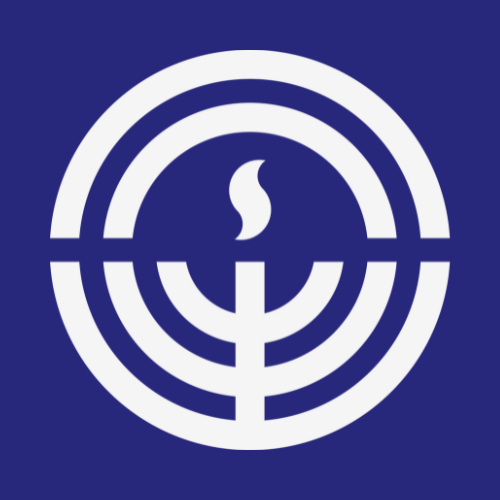Footsteps Through Time: Reflections on Our First Day in Krakow
Kara Frank, a member of Harry Kay Leadership Institute’s Cohort 11, reflects on her experience in Poland.
There’s something surreal about standing at the intersection of past and present, especially when that intersection represents both profound tragedy and remarkable resilience. Today marked our first day in Poland with the Harry Kay Leadership Institute, and I find myself sitting in my hotel room in Krakow, attempting to process everything we experienced in just these initial hours.
Before we left Minnesota, when I told my mom about our upcoming trip to Poland, she shook her head and asked why on earth my husband and I would want to go there. “I can’t imagine visiting a place that exterminated us,” she said, her voice carrying the weight of generational trauma. Her reaction wasn’t unique—many Jewish families still can’t fathom returning to the soil that absorbed so much of our blood. But something in me felt strongly that if we didn’t go, if we turned away, we would be letting them win. Our presence here is itself an act of resistance, of saying: we’re still here, our story isn’t finished.
Our journey began with a visit to what was once the Jewish Ghetto. Walking those streets, now peaceful and ordinary, it’s almost impossible to reconcile them with the horrors that unfolded here less than a century ago. Our guide pointed out the remnants of the ghetto wall, fragments that stand as stark reminders of a time when freedom was stripped away brick by brick.
From there, we ventured into the former Jewish Quarter, Kazimierz, where for over 800 years, Jewish life flourished in this Polish city. We visited three synagogues today, each telling its own story of this community. These synagogues remain standing largely because the Germans did not heavily bomb Krakow during the war, leaving these architectural and spiritual treasures intact when so many others across Europe were destroyed. Walking through these spaces, touching the ancient walls, and standing where generations of Jews once prayed created a powerful connection to the past.
What struck me most profoundly was the contrast – once home to 65,000 Jews, Krakow now has a Jewish population of just a few hundred. Walking through Kazimierz feels like exploring an echo, where the vibrations of a once-thriving community can still be felt, even as their physical presence has largely vanished.
During our tour, our guide shared a powerful insight that resonated deeply with me: “What happens to us when we experience trauma? We look for answers.” As he spoke these words, I couldn’t help but think about the countless times throughout our history that we, as Jews, have done exactly this – including now, in a post-October 7th world. There’s something deeply Jewish about this response – this instinct to question, to seek understanding even in the face of incomprehensible suffering. Judaism has always been a tradition that values questions as much as answers, that sees the search for meaning as sacred in itself.
At the end of our day, we had the privilege of meeting Karina Sokolowska, the JDC director for Poland. She shared with us her remarkable work reviving the Jewish community in Poland—essentially building a community from nothing. Recently, she’s been instrumental in rescuing Jews from the war in Ukraine, bringing them to safety across the border. What stayed with me most from our conversation was her insight: “Judaism is about being rebellious. You just keep asking questions.” Her words perfectly captured the spirit of resilience that has kept our people moving forward through millennia of challenges.
As leaders in Minnesota’s Jewish community, I think that’s part of what we’re doing here – looking for answers. How did this happen? How was it allowed to happen? How did some survive while so many perished? And perhaps most importantly for us as leaders: how do we ensure it never happens again?
But there’s another question that feels equally important: How do we honor what was lost while still embracing life and building toward the future? Today, we saw signs of revival in Kazimierz – Jewish-themed restaurants, cultural festivals, renewed interest in Jewish history. It’s complicated, sometimes feeling like a museum to what once was rather than a living community, but there’s something powerful about this remembrance too.
As we embark on this leadership journey together, I hope we can hold both the weight of history and the possibility of the future. That we can honor the profound loss while celebrating the resilience and wisdom of our tradition. That we can find, if not answers, then at least more meaningful questions.
Tomorrow brings perhaps the most challenging part of our journey as we visit Auschwitz. I find myself both dreading and feeling compelled to witness this place that has come to symbolize the very depths of human cruelty. Yet as leaders, we must look unflinchingly at both the darkest chapters of our history and the remarkable resilience that has allowed our people to survive. As we’ve discussed throughout our Harry Kay leadership experience, there is profound meaning in the Hebrew word “Hineini” – “Here I am.” It’s a declaration of presence, of readiness to bear witness, to serve, to lead. Tomorrow, at Auschwitz, that is our purpose: Hineini. I am here to witness.

